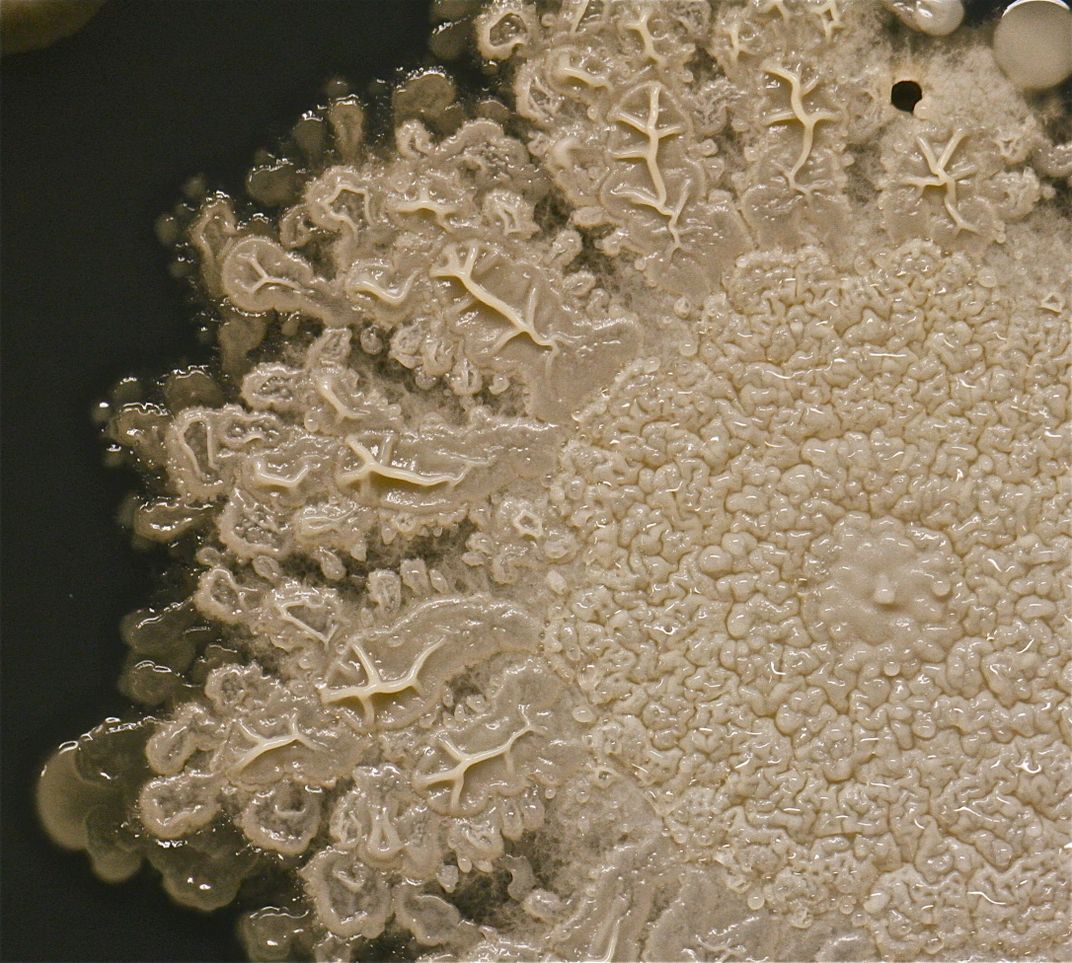Here’s What Happens When You Culture the Bacteria on an Eight-Year-Old’s Hand
Lots of cooties grow
:focal(1320x1019:1321x1020)/https://tf-cmsv2-smithsonianmag-media.s3.amazonaws.com/filer/61/45/61457b25-54a9-4bb2-b5b1-30ce1ab40dbc/img_6288.jpg)
The world is teaming with microbes. That fact is never so graphically apparent as when someone actually takes the time to culture the bacteria and yeast growing on everything — from pillowcases to toilets to eyeballs. Fortunately many of these microbes are vital to human health. So perhaps this photo of the stuff previously living on an eight-year-old boy’s hand can be appreciated rather than reviled.
The Facebook page for the American Society for Microbiology (ASM) recently shared a photo of a large bacterial culture plate bearing a handprint made of microbial colonies taken by Tasha Sturm. Sturm, who works as a lab tech at Cabrillo College in California, created the evocative culture by pressing her son’s hand into an agar plate after he was playing outside. Agar is commonly used to culture microbes because it provides a nutrient-rich base for microorganisms to grow. She posted the hand print microbe portrait at MicrobeWorld.org, run by the ASM.
Sturm explains in detail how the plate needs to be cultured and incubated to get the best results — apparently some of the colonies of yeast and fungi only take on color when they are grown at room temperature. Sturm has printed both of her kids’ hands for a few years now and saves the results for microbiology classes at the college. She explained more in an email to Smart News:
I used to do my daughter’s hand until her hand became too big for the large plates and then started doing my son. I save the plates and give it to the instructors to use as a demo for the class. My kids think it is "cool" and the students like it as well.
Determining the exact species would require some more testing, but Sturm added some tentative IDs in the comment section of the original post. White colonies are probably a form of Staphylococcus, which lives in people’s noses and skin. Most strains are harmless or even beneficial but some can cause disease when they grow where they shouldn’t, especially when they develop antibiotic resistance. Sturm also posted two close ups of colonies that are either species of Bacillus — a common soil bacterium, though one species is responsible for making feet stinky — or a yeast.
Researchers are still working to explain exactly what this abundance of microbes on the body and its stunning diversity means for human health and disease. But one thing that is increasingly evident is that a germ-laden hand is perfectly normal and can even be beautiful.

